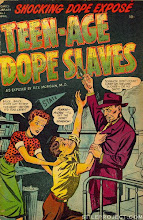Lessons for Creating Successful Drug Policies DRUG DECRIMINALIZATION IN PORTUGAL
On July 1, 2001, a nationwide law in Portugal
took effect that decriminalized all drugs, includ-
ing cocaine and heroin. Under the new legal
framework, all drugs were “decriminalized,” not
“legalized.” Thus, drug possession for personal
use and drug usage itself are still legally prohib-
ited, but violations of those prohibitions are
deemed to be exclusively administrative viola-
tions and are removed completely from the crim-
inal realm. Drug trafficking continues to be
prosecuted as a criminal offense.
While other states in the European Union
have developed various forms of de facto decrim-
inalization—whereby substances perceived to be
less serious (such as cannabis) rarely lead to crim-
inal prosecution—Portugal remains the only EU
member state with a law explicitly declaring
drugs to be “decriminalized.” Because more than
seven years have now elapsed since enactment of
Portugal’s decriminalization system, there are
ample data enabling its effects to be assessed.
Notably, decriminalization has become increas-
ingly popular in Portugal since 2001. Except for
some far-right politicians, very few domestic politi-
cal factions are agitating for a repeal of the 2001 law.
And while there is a widespread perception that
bureaucratic changes need to be made to Portugal’s
decriminalization framework to make it more effi-
cient and effective, there is no real debate about
whether drugs should once again be criminalized.
More significantly, none of the nightmare scenarios
touted by preenactment decriminalization oppo-
nents—from rampant increases in drug usage
among the young to the transformation of Lisbon
into a haven for “drug tourists”—has occurred.
The political consensus in favor of decriminal-
ization is unsurprising in light of the relevant
empirical data. Those data indicate that decrimi-
nalization has had no adverse effect on drug usage
rates in Portugal, which, in numerous categories,
are now among the lowest in the EU, particularly
when compared with states with stringent crimi-
nalization regimes. Although postdecriminaliza-
tion usage rates have remained roughly the same or
even decreased slightly when compared with other
EU states, drug-related pathologies—such as sexu-
ally transmitted diseases and deaths due to drug
usage—have decreased dramatically. Drug policy
experts attribute those positive trends to the
enhanced ability of the Portuguese government to
offer treatment programs to its citizens—enhance-
ments made possible, for numerous reasons, by
decriminalization.
This report will begin with an examination of
the Portuguese decriminalization framework as
set forth in law and in terms of how it functions
in practice. Also examined is the political climate
in Portugal both pre- and postdecriminalization
with regard to drug policy, and the impetus that
led that nation to adopt decriminalization.
The report then assesses Portuguese drug poli-
cy in the context of the EU’s approach to drugs.
The varying legal frameworks, as well as the overall
trend toward liberalization, are examined to enable
a meaningful comparative assessment between
Portuguese data and data from other EU states.
The report also sets forth the data concerning
drug-related trends in Portugal both pre- and
postdecriminalization. The effects of decriminal-
ization in Portugal are examined both in
absolute terms and in comparisons with other
states that continue to criminalize drugs, partic-
ularly within the EU.
The data show that, judged by virtually every
metric, the Portuguese decriminalization frame-
work has been a resounding success. Within this
success lie self-evident lessons that should guide
drug policy debates around the world.
Drug Czar Required By Law To Lie!
A fact that pretty much encapsulates the entire conservative agenda, one that cannot exist without telling lies to itself as a way of reducing the chronic fear that drives the conservative mindset.
http://www.drugwarrant.com/articles/why-is-marijuana-illegal/
Report to Congress - Chapter 5 - Cocaine and Federal Sentencing Policy - Feb 1995
Report to Congress - Chapter 5 - Cocaine and Federal Sentencing Policy - Feb 1995
Empirical Findings on Crack and Powder Cocaine and Psychopharmacologically Driven Crime The limited evidence to date suggests that psychopharmacologically driven crime may be least important in explaining the association between crime and both crack and powder cocaine. With respect to violent crime, the 1990 Goldstein et al., Homicide Study found that only three of the 118 exclusively crack-related homicides in the study were psychopharmacological in nature, and in two of these three cases the victim precipitated the crime. The study concluded that there were another two psychopharmacologically driven homicides in which crack was involved. However, alcohol also was involved in these two cases, and overall, some 21 alcohol-only homicides were considered to be psychopharmacologically driven - considerably more than for any other drug - suggesting that alcohol may have played a significant role in these two crack-related cases. Id. at 664 (table 2), 665."
Obama's Drug Czar Lies About Medical Marijuana
Obama's Drug Czar Lies About Medical Marijuana
'Marijuana is dangerous and has no medicinal benefit,' Drug Czar Gil Kerlikowske said in downtown Fresno while discussing a multiagency effort to eradicate marijuana in eastern Fresno County, even though his boss, President Obama, campaigned on a pledge to stop bullying medical marijuana in California. cont..."
Subscribe to:
Posts (Atom)



